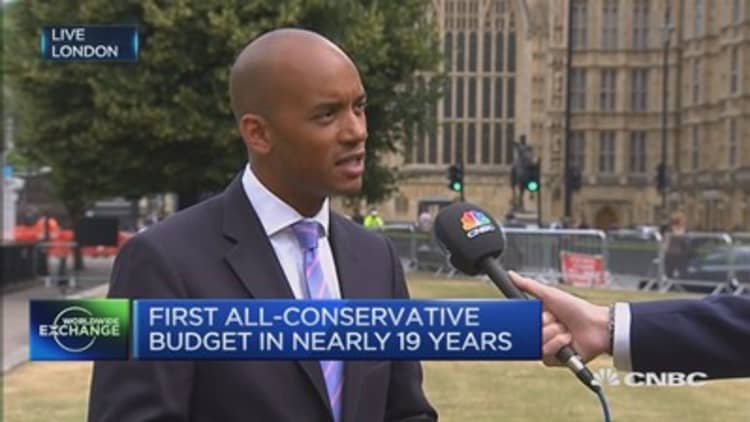The Bank of England left its key interest rate unchanged at a record low of 0.5 percent on Thursday in a decision widely anticipated by analysts.
The central bank also kept the size of its bond purchases under the quantitative easing (QE) program at £375 billion ($577 billion) and made no statement after the monetary policy decision.
An improving economy, in particular a strengthening in the jobs market, has boosted talk in recent weeks that the BoE could be among the first of the world's major economies to lift interest rates that were slashed to near zero during the global financial crisis.
Still, economists say a crisis in Greece, concerns about China's economic outlook and expectations that the U.S. Federal Reserve may tighten policy later rather than soon could all encourage the BoE to wait a little longer than anticipated before making its next rate move.
Read MoreGreece is bad but this is worse!
"While there has been rather more volatility since the (May) election in market expectations for U.K. rates, the still rather mixed profile to incoming U.K. data and surveys, the renewed crisis in Greece, the turmoil in Chinese markets and the uncertainty about the global economic outlook and the pushing back on U.S. rate lift-off expectations, leaves Q1 2016 as the consensus view," Marc Ostwald, a strategist at ADM Investor Services International, said in note on Thursday.
"There is some risk seen of a move in November," he said.
Sterling was steady after the BoE rate decision, trading at about $1.5380.

On Wednesday, the government – led by the ruling Conservative party which returned to power with a surprising election win in May – delivered a budget that scrapped student grants and froze working age benefits.
Analysts said the budget did not have major implications for U.K. monetary policy.
"Despite the Chancellor's decision to smooth the fiscal squeeze in yesterday's Budget, the Monetary Policy Committee (MPC) is likely to continue to keep interest rates on hold until next year," analysts at Capital Economics said in a note.
"Austerity will still be a big drag on the economy over the next couple of years, while there are now signs that productivity is recovering and so will keep inflation subdued over the medium term," they added.


